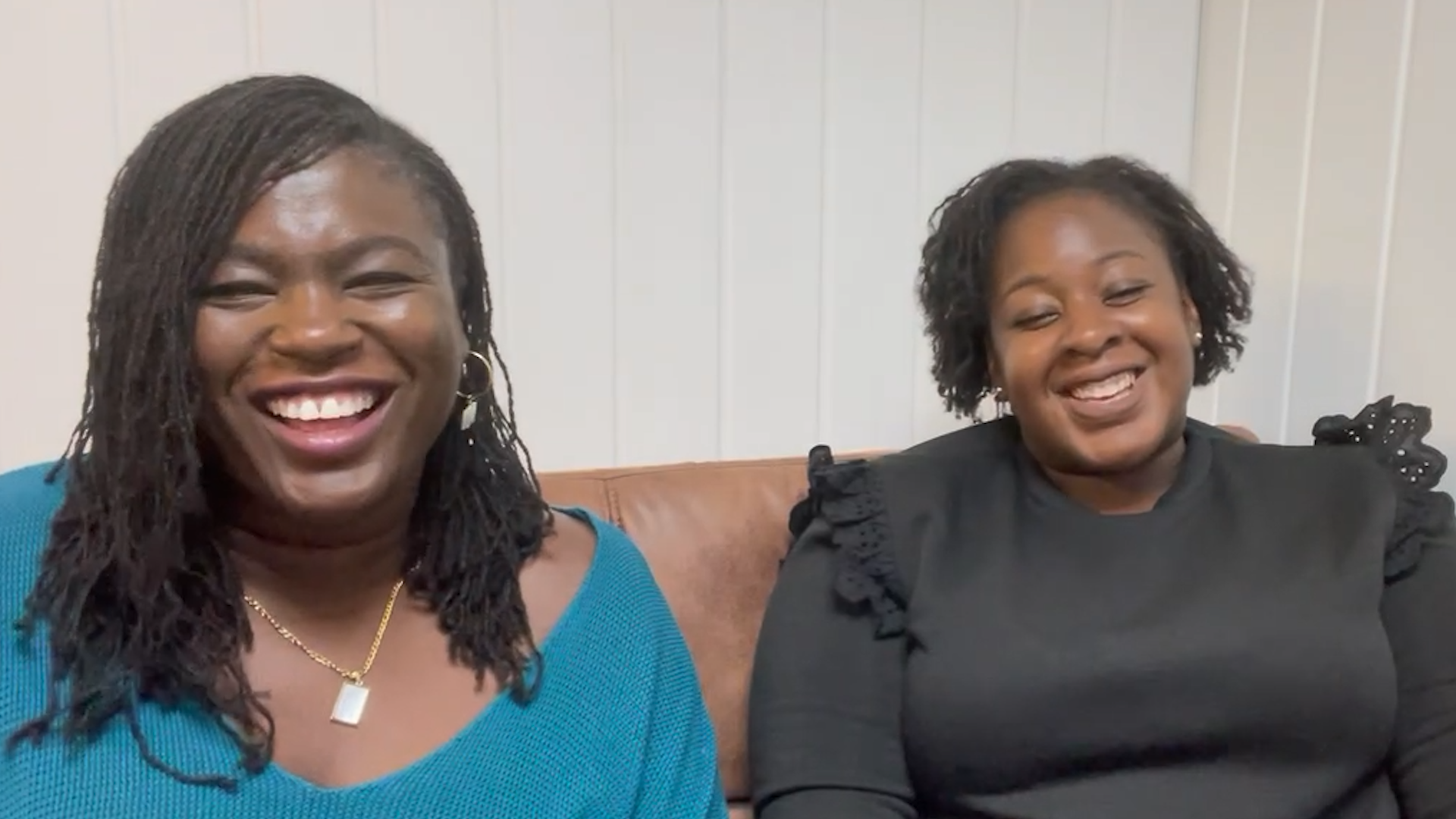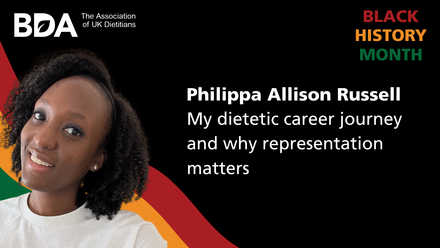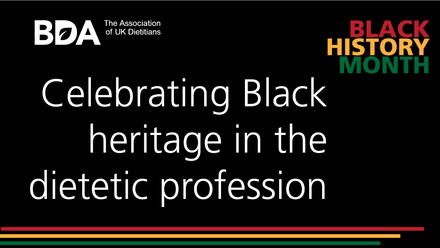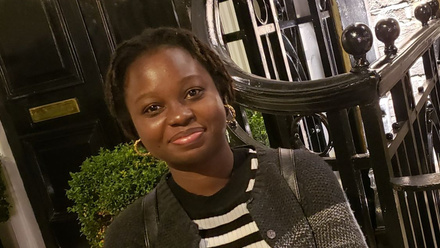Registered Dietitians Ellouise Simpson and Ellie Claxton sat down to discuss what Black History Month means to them and the Dietetic profession, the meaning behind this year's theme (Time for Change: Action Not Words) and ways everybody can get involved in celebrating this month - and beyond.
Watch the full video here:
Ellouise, who is a Diabetes Specialist Dietitian working in Primary Care, is of Jamaican heritage while newly qualified Dietitian Ellie Claxton has roots in St Kitts and Nevis.
What does Black History Month mean to you as a Dietitian?
Ellie: "It means being able to celebrate my culture and my heritage with friends and colleagues and patients and get to see the enjoyment and excitement that it brings to them."
Ellouise: "It is a great opportunity to enlighten yourself of Black history. As a Dietitian I feel really fortunate to be in a position where I can be supporting patients from all nationalities, but when I do have a patient from a Black heritage it’s a beautiful opportunity to exchange my knowledge and understand where they’re coming from."

The theme for this year is 'Time for Change: Action Not Words'. What next steps would you like to see as a result of this month?
Ellouise: "The theme is really good. We do this month for Black History Month and then November comes and you go back to your everyday life. This month is an opportunity to ask questions, you’ve got that backing of the fact it’s Black History Month. You may have had a patient of Black heritage and not have a clue what they’re talking about. Having the conversation with someone from that heritage is a way to get down to the nitty-gritty of what something is. What is a yam and how do you eat it? As Dietitians having that conversation going forward outside of BHM will really help the clinician and the patient. That’s something we should be looking at, settings the tone for the rest of the months going forward.
"Ask the questions. That’s the biggest thing. If you have a patient for example you see their name written and you’re not sure how to pronounce it - just ask them. Be interested. It will really set the tone for that consultation. It could be an opportunity to have a look at your department resources, see if they need updating and spend that time to bring them up-to-date. Have practical tips.
"Just because someone is Black doesn’t mean they eat a certain way - it doesn’t mean they eat rice and peas, they eat fufu, they have mac and cheese or any of those sort of things."
Ellie: "The clinicians that are Black, can you ask them? You should feel comfortable enough to ask them. Don’t second guess what a food is, how it’s cooked - ask those questions and be open and honest.
"People like when you ask where they’re from. They like to talk to you about where they come from and their heritage and it helps build that rapport you might not normally get."
What can people do to celebrate Black History Month?
Ellie: "We celebrate the fact that it is a month of thinking about our history, our culture and our heritage. Everybody can celebrate in the same way, thinking about the culture and history of Black people. If there’s a talk, go and listen. It doesn’t just have to be in October. We have Carnival in August. If you want to get involved go and do it and enjoy learning about another culture."
Ellouise: "It could just be that each month you will make a concerted effort to spend that little bit more time learning more about Black heritage and how that has an impact on someone’s diet and lifestyle."
What would you like people that are not of Black heritage to know about Black history?
Ellouise: "All Black people are not the same. For example you have the Caribbean and you have so many different islands within the Caribbean. They all have different national dishes, they all cook things differently, and if we go wider afield there are Black people from different continents. Lifestyle, diet, and culture is very, very different. It’s important to respect that and make sure you try and go that extra step to find out a little bit more."
Ellie: "My family are from St Kitts and Nevis which are islands that are swimmable in distance, but the food is very different. We cook differently, the dishes taste differently. I can taste a dish on my dad’s side and then the same dish on my mum’s side and it will not taste the same. Be aware that just because we have the same colouring we are very different."
How can we encourage more people of Black heritage to take up Dietetics?
Ellouise: "By getting Dietetics out there to the wider field and letting people know what a Dietitian does full stop. I was introduced to Dietetics from a renal nurse who knew that I was interested in sports and nutrition. Before that I didn’t know anything about a Dietitian. Going into schools, doing workshops - I know they have hospitality and catering at schools, it could be that we could be guest speakers and doing practical sessions could be a good starting point."
Ellie: "There are Black Dietitians and we do exist and we’re just the same as anybody else. Seeing how special and unique it is to have someone who looks a little bit like you as your practitioner, and how great that is and how nice it is to share that."




